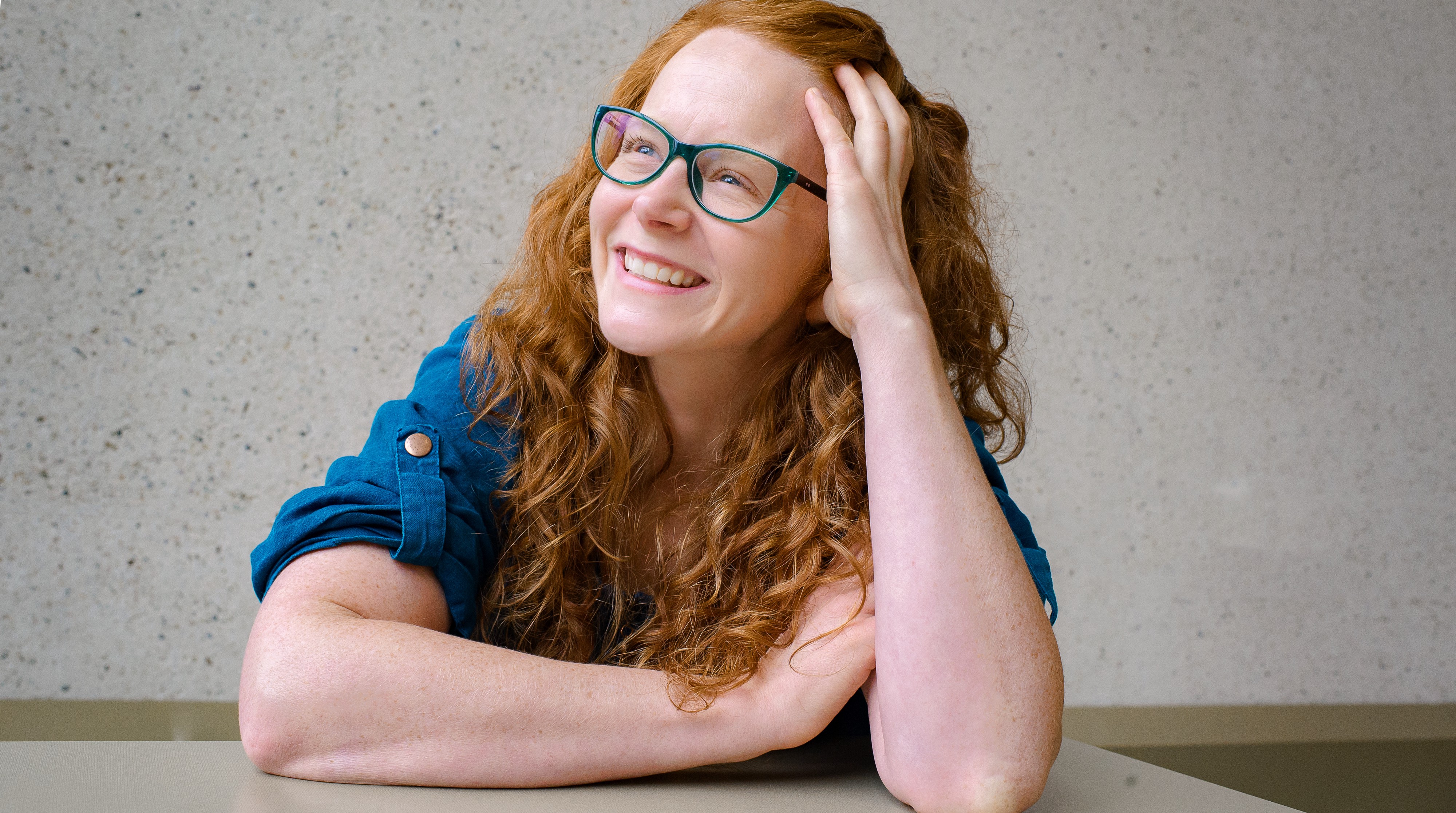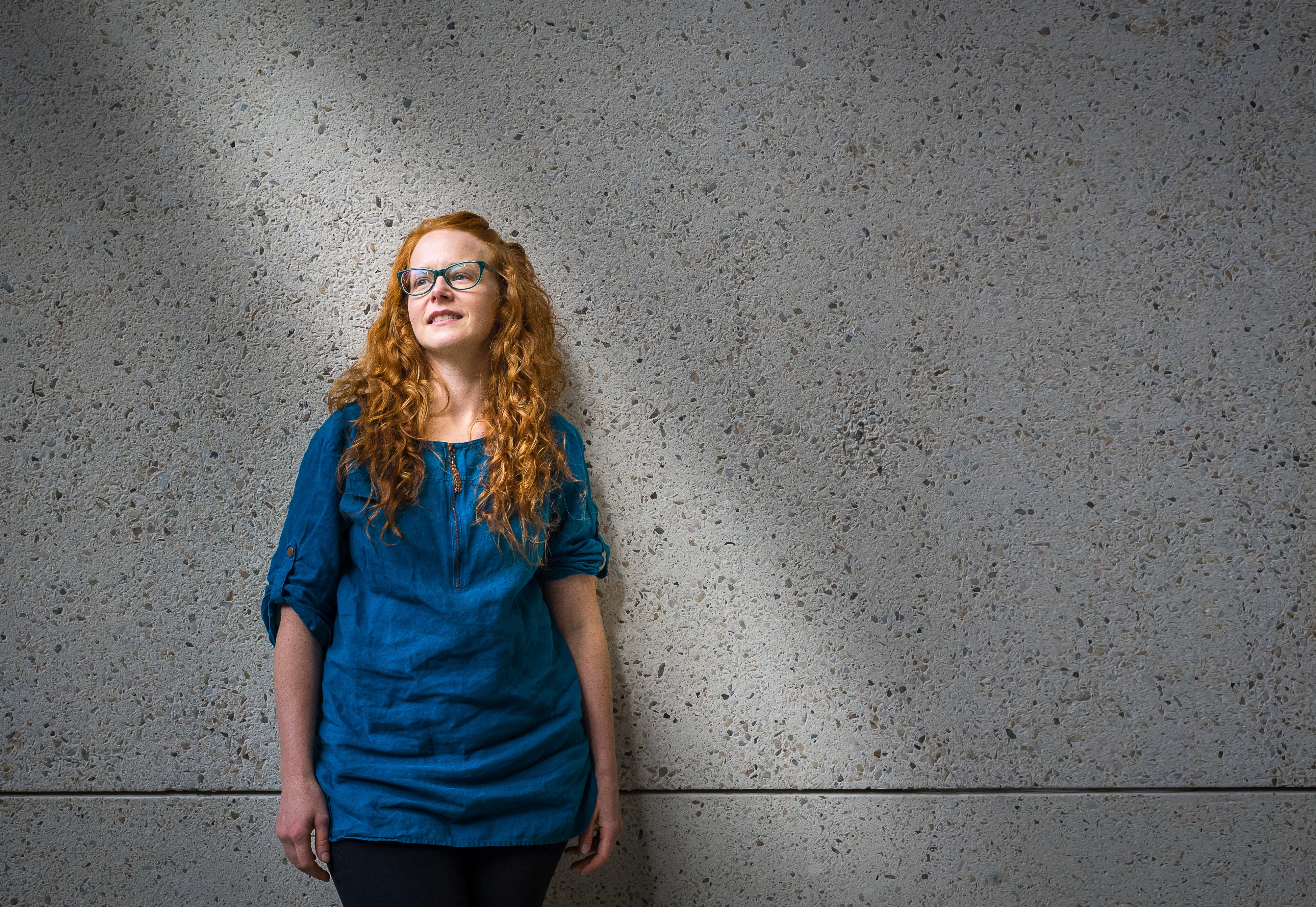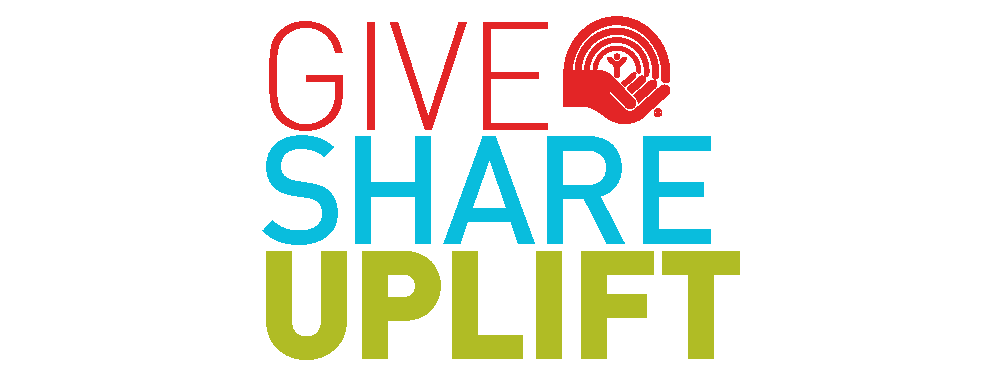
With her friendly smile, U of A education student Nicola Dakers radiates warmth and empathy — she’s someone you feel you could confide in, share your troubles with. You’d be right. In her 37 years of life, Dakers has shouldered her share of grief. She was just two years old when she was first sexually assaulted, but the trauma eventually left her with a desire to help others. And as she told me during our conversation, it’s why she’s begun to share her story publicly in support of this year’s United Way fundraising campaign.
Today, she is turning compassion into action with career plans to work with underprivileged children in the classroom, but says it was a long journey. The childhood assaults ended after three years, but left behind lingering trauma that sent Dakers into a tailspin of depression, eating disorders, heavy drinking and suicide attempts that haunted her for more than 20 years. And when it happened again in her adulthood, it was a staggering blow.
It wasn’t until she got up the courage a few years ago to dial the Sexual Assault Centre of Edmonton, that life started to change for the better. Here are her thoughts.
Why did you want to share such a personal, painful experience with everyone?
“I want people to see that the services provided by partners of the United Way — like the Sexual Assault Centre — as something more than just a handout. The experiences that cause poverty are much more complex than someone making poor life choices or not having a good education. Many people facing poverty are struggling with complex factors that almost always relate back to some kind of painful trauma or multiple traumas, without the tools or support to know where to turn for help.”
How did the abuse affect you?
“I had really internalized a sense of worthlessness by the time I finished kindergarten. I remember feeling hopeless and first thinking about wanting to die when I was about eight. I started drinking heavily in junior high school because it made me feel like a normal person who could engage with other people — until it became problematic.”

Dakers continued to drink heavily through high school, but managed to get herself through college, graduating from the U of A with a Bachelor of Arts degree. Then she was assaulted again during a medical appointment, and felt the bottom dropping out of her world.
“I was not seeing my worth at all. I was isolated, I didn’t have people in my life I could trust. I had a lot of student debt. I was depressed.” She visited a string of counsellors, but none seemed able to tap into her underlying trauma.
What made you reach out for help?
“I had a moment when I realized that life just has to be better — it can’t always be like this. So I would dial the number to the Sexual Assault Centre and then hang up. I did that several times. But when I let the call finally go through and I spoke to the person on the line, they were so affirming. I immediately thought, ‘I’m not crazy, it did happen to me and maybe now things can get better’.”
How did the Sexual Assault Centre of Edmonton help you?
“I got individual counselling that helped me process what had happened to me, and it educated me about what happens to a person after sexual assault. I could see the struggles I had were the result of the trauma I had suffered. And when I realized that, I felt like I could start living and making choices — that I was deserving of that.
“In group therapy, I met other people dealing with relationship issues, poverty and addiction, and I also realized that the common element was the abuse we had all gone through.’
How are you doing now?
“I feel quite hopeful about my future. I came back to university in 2016 to pursue a teaching degree. I love teaching and I feel I can view students through a very compassionate lens.”
Economically, times are tight for a lot of people, or they may have other causes they already support. Why do you believe they should give to the United Way?
“We take steps to protect ourselves — we save money, surround ourselves with family, but sometimes with trauma — the death of a child, suffering serious injuries in a car accident, divorce — you fall apart. I have met people like this. They had everything, but something happened and they lost it all. If it weren’t for the United Way agencies, they wouldn’t have survived.
“I know that the support people have given to the United Way saved my life and I want to thank anybody who has donated or plans to donate, for their support. United Way and the programs it funds reach across all areas — children and families, people with disabilities, those suffering trauma — it’s so diverse, but at the same time so specific. They are meeting the most needs and actively making a difference for people. And with 40,000 kids in the capital region living in poverty, giving to the United Way is an investment in our future. If we can give them the tools to do the best they can in life, we help end another cycle of poverty.”

The University of Alberta’s 2018 United WayThe University of Alberta’s 2018 United Way fundraising campaign runs from October 10–26, 2018. To learn more about how your can give, share, and uplift the community through your participation visit the U of A’s United Way website.U of A’s United Way website.
Story by Bev Betkowski — Communications Associate, Marketing and Communications
As a Communications Associate with University Relations’ Office of Marketing and Communications, Bev has been a storyteller on campus for 14 years. Prior to that, she was a newspaper reporter and editor with a career that took her all across her home province of Alberta. She currently writes for Folio, the U of A’s news site, and assists with media relations.